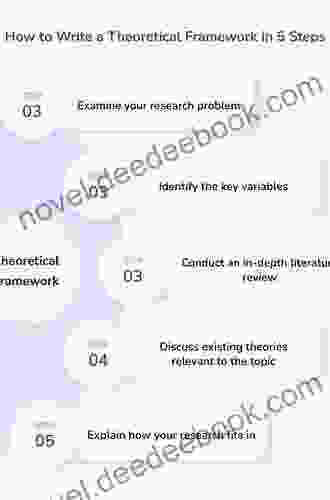Imagined Theatres: Writing for Theoretical Stage

Imagine a theatre where the stage is not a physical space, but rather a realm of the mind. A place where the audience is not constrained by the limitations of reality, but can soar on the wings of their imagination to explore worlds and ideas that would be impossible to recreate on a traditional stage. This is the realm of imagined theatres, a concept that has fascinated and inspired playwrights and directors for centuries.
5 out of 5
| Language | : | English |
| File size | : | 5195 KB |
| Text-to-Speech | : | Enabled |
| Screen Reader | : | Supported |
| Enhanced typesetting | : | Enabled |
| Word Wise | : | Enabled |
| Print length | : | 303 pages |
Historical Roots
The idea of imagined theatres can be traced back to the ancient Greeks, who believed that the theatre could be a powerful tool for exploring philosophical and political ideas. In his seminal work, "Poetics," Aristotle argued that tragedy could evoke pity and fear in the audience, leading to a cathartic release of emotions. This catharsis, Aristotle believed, could have a transformative effect on the audience, purging them of their negative emotions and leaving them feeling cleansed and renewed.
In the centuries that followed, playwrights and directors continued to experiment with the idea of imagined theatres. In the medieval period, morality plays were often performed in churches, with the audience seated in the nave and the stage located in the chancel. These plays used simple sets and costumes, and relied heavily on the audience's imagination to fill in the gaps.
Techniques for Writing for Imagined Stage
Writing for imagined stage requires a different set of skills than writing for traditional theatre. The playwright must be able to create a vivid and compelling world in the mind of the audience, using language that is both evocative and precise. They must also be able to structure the play in a way that allows the audience to follow the action and understand the characters' motivations.
There are a number of techniques that playwrights can use to create imagined theatres. One common technique is to use sensory language to appeal to the audience's senses. By describing the sights, sounds, smells, tastes, and textures of the world, the playwright can create a vivid and immersive experience for the audience.
Another technique is to use metaphor and symbolism to create multiple layers of meaning. By using symbols and metaphors, the playwright can hint at deeper meanings and connections, encouraging the audience to think critically about the play and its themes.
Finally, playwrights can use the structure of the play itself to create an imagined stage. By using flashbacks, dream sequences, and other non-linear techniques, playwrights can create a sense of disorientation and confusion, forcing the audience to question their own perceptions and assumptions.
Challenges of Writing for Imagined Stage
Writing for imagined stage presents a number of challenges for playwrights and directors. One of the biggest challenges is the lack of visual cues. On a traditional stage, the audience can see the actors, the sets, and the costumes, all of which help to create a sense of reality. In an imagined theatre, however, the audience must rely on their own imaginations to create the world of the play. This can be a difficult task, especially for audiences who are not used to using their imaginations in this way.
Another challenge is the need to create a consistent and cohesive world. In a traditional theatre, the director can use lighting, sound, and other technical elements to create a unified environment. In an imagined theatre, however, the director must rely on the playwright's words to create this environment. This can be a difficult task, especially if the play is complex or has a large cast of characters.
Examples of Imagined Theatre
There are many examples of imagined theatre throughout history. One of the most famous is Samuel Beckett's "Waiting for Godot," which tells the story of two tramps who are waiting for a man named Godot to arrive. The play is set in a barren wasteland, and the only props are a tree and a rock. Despite the lack of action and scenery, the play has been praised for its absurdist humor and its exploration of existential themes.
Another example of imagined theatre is Sarah Kane's "Blasted," which tells the story of a young woman who is raped and tortured in a hotel room. The play is set in a war zone, and the characters are all deeply traumatized. Despite the harrowing subject matter, the play has been praised for its poetic language and its unflinching look at the human condition.
Imagined theatres are a fascinating and challenging form of theatre. They offer playwrights and directors the opportunity to create works that are not constrained by the limitations of reality. By using their imaginations, playwrights can create worlds and characters that are both timeless and universal.
5 out of 5
| Language | : | English |
| File size | : | 5195 KB |
| Text-to-Speech | : | Enabled |
| Screen Reader | : | Supported |
| Enhanced typesetting | : | Enabled |
| Word Wise | : | Enabled |
| Print length | : | 303 pages |
Do you want to contribute by writing guest posts on this blog?
Please contact us and send us a resume of previous articles that you have written.
 Page
Page Story
Story Reader
Reader Library
Library Paperback
Paperback E-book
E-book Magazine
Magazine Sentence
Sentence Bookmark
Bookmark Shelf
Shelf Bibliography
Bibliography Foreword
Foreword Annotation
Annotation Footnote
Footnote Scroll
Scroll Codex
Codex Tome
Tome Bestseller
Bestseller Classics
Classics Library card
Library card Autobiography
Autobiography Memoir
Memoir Reference
Reference Encyclopedia
Encyclopedia Dictionary
Dictionary Character
Character Catalog
Catalog Card Catalog
Card Catalog Archives
Archives Study
Study Research
Research Scholarly
Scholarly Academic
Academic Rare Books
Rare Books Special Collections
Special Collections Literacy
Literacy Storytelling
Storytelling Awards
Awards Book Club
Book Club Textbooks
Textbooks Gerard Noel
Gerard Noel Ian Hughes
Ian Hughes Linda Gregerson
Linda Gregerson Diana L Stephens
Diana L Stephens Jennifer Clapp
Jennifer Clapp Glynn Stewart
Glynn Stewart Ennio Morricone
Ennio Morricone Whitelaw Reid
Whitelaw Reid Frank Donoghue
Frank Donoghue Lennart Nacke
Lennart Nacke Espanovo Sas
Espanovo Sas Sam Tracy
Sam Tracy Melanie Gadd
Melanie Gadd Valeria Docampo
Valeria Docampo Jules Witcover
Jules Witcover Michael Stone
Michael Stone Nolon Stacey
Nolon Stacey Mikael Lindnord
Mikael Lindnord Kyle Onstott
Kyle Onstott John Robb
John Robb
Light bulbAdvertise smarter! Our strategic ad space ensures maximum exposure. Reserve your spot today!

 Charles DickensAcid-Base Regulation and Body Temperature Developments in Critical Care: A...
Charles DickensAcid-Base Regulation and Body Temperature Developments in Critical Care: A...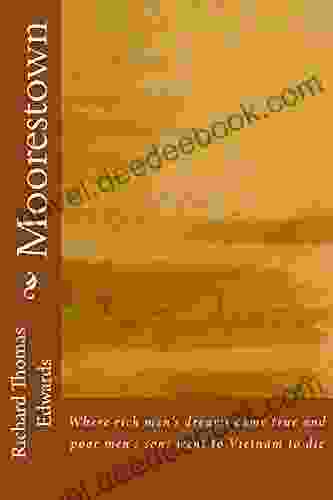
 Derrick HughesWhere Rich Men's Dreams Came True and Poor Men's Sons Went to Vietnam to Die
Derrick HughesWhere Rich Men's Dreams Came True and Poor Men's Sons Went to Vietnam to Die
 Billy FosterThe Evolving Landscape of Artificial Intelligence: Uses, Misuses, and Future...
Billy FosterThe Evolving Landscape of Artificial Intelligence: Uses, Misuses, and Future... Dominic SimmonsFollow ·13.7k
Dominic SimmonsFollow ·13.7k Beau CarterFollow ·5.3k
Beau CarterFollow ·5.3k Matthew WardFollow ·5.8k
Matthew WardFollow ·5.8k Jerry HayesFollow ·4.6k
Jerry HayesFollow ·4.6k Alex ReedFollow ·6.8k
Alex ReedFollow ·6.8k Jordan BlairFollow ·19k
Jordan BlairFollow ·19k Jack LondonFollow ·2.4k
Jack LondonFollow ·2.4k Ernest J. GainesFollow ·11.9k
Ernest J. GainesFollow ·11.9k
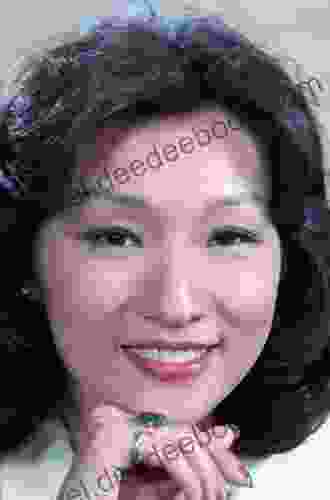
 Bryce Foster
Bryce FosterPerforming Asian American Women On Screen And Scene
The representation of Asian American women...
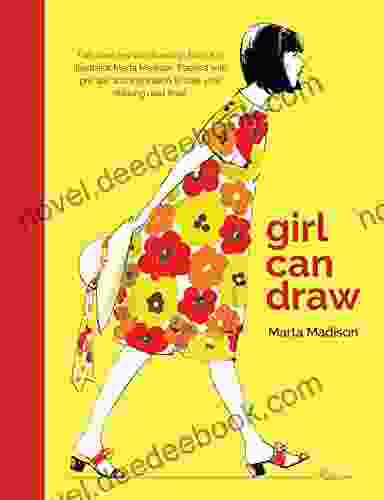
 Frank Mitchell
Frank MitchellGirl Can Draw: A Spirited and Inspiring Play by Joe...
Prologue In the realm of...
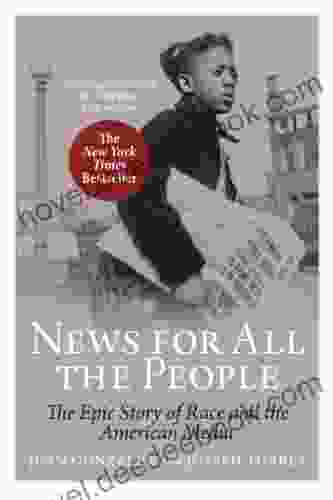
 Marc Foster
Marc FosterThe Epic Story of Race and the American Media: A Journey...
From the Shadows of Slavery to the Dawn of...
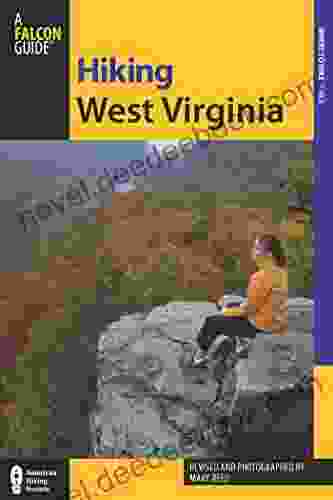
 Demetrius Carter
Demetrius CarterThe Ultimate Guide to Hiking West Virginia: Discover the...
West Virginia, often referred to as...
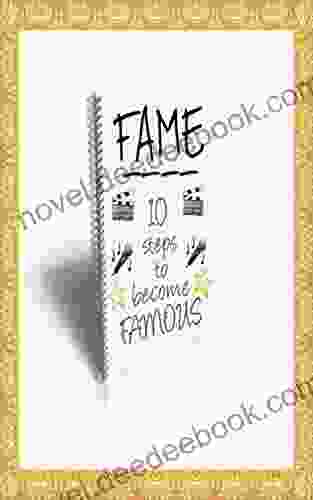
 Isaiah Price
Isaiah PriceThe Ten Step Guide on How to Become Famous: Unleash Your...
In the captivating world of entertainment...
5 out of 5
| Language | : | English |
| File size | : | 5195 KB |
| Text-to-Speech | : | Enabled |
| Screen Reader | : | Supported |
| Enhanced typesetting | : | Enabled |
| Word Wise | : | Enabled |
| Print length | : | 303 pages |


